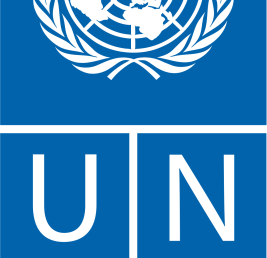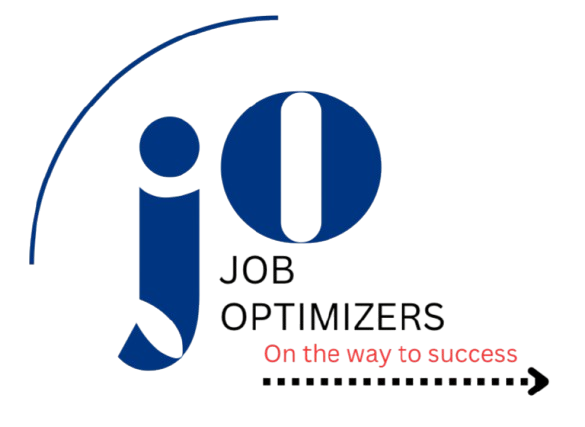
Climate and Security Risk
Full time @UNDP posted 5 days ago in Administration & Office Support , in Consulting & Strategy , in NGO Shortlist Email JobJob Detail
-
Job ID 2151
-
Offered Salary 0
-
Career Level Entry-level
-
Experience 3 Years
-
Gender Male/Female
-
Industry Others
-
Qualifications Degree Bachelor
Job Description
The multidimensional nature of climate change creates far-reaching consequences not only for the environment but also for development and, ultimately, for the security of people, communities and states. While climate change does not cause violent conflict in and of itself, it can multiply risks that contribute to insecurity, overburden state capacity, and make already vulnerable communities more susceptible to threats.
In the past 15-20 years, these interlinkages between climate change, prevention and sustaining peace have received a growing amount of attention both among researchers and increasingly also in policy circles. In the Security Council, for instance, a landmark Presidential Statement from 2011 (PRST/2011/15) paved the way for more regular engagement on this topic and set the stage for a series of formal outcomes over the past two years recognizing the adverse impact of climate change on stability and calling for “adequate risk assessments and risk management strategies by governments and the United Nations.”
While the debates on the climate-conflict nexus have extended beyond causality and contextual pathways, how climate action may contribute to peace, stability, and security in conflict-affected and fragile contexts needs to be better understood and documented. Communities suffer a “double exposure” and “double vulnerability” to climate change and conflict, viz extant socio-, economic- and political factors which make them vulnerable to conflict and also leave them susceptible to climate change.
Addressing climate-related security risks represents a strategic focus on delivering innovative and cross-cutting approaches to promote climate action and sustaining peace for UNDP, the largest implementer of climate change mitigation and adaptation, and the largest conflict prevention and peacebuilding portfolio in the UN system. UNDP’s Climate Security Offer leverages the expertise of UNDP’s Global Policy Network on climate, environment, peace and security, and also builds on the Climate Security Mechanism’s work to:
- Climate-proof prevention and peacebuilding,
- Ensure peace-positive mitigation and adaptation,
- Deliver integrated approaches to climate action and sustaining peace, and
- Strengthen the capacity of regional entities and cross-border approaches to address climate-related security risks.
Duties and Responsibilities
Under the supervision of the Team Leader – Climate Security Risk, the intern shall perform, inter alia, the following tasks: Tasks assigned may include one or more of the following:
-
- Assisting with policy and advocacy work, including collecting data from projects, drafting, formatting, and proofing communications materials, success stories and event invitations
- Support the collection of information related to policy and programme support, analyse the information and develop a short compendium of good programming and policy practices in climate, peace and security
- Assist in other basic research i.e., collecting, analyzing and presenting statistical data and other information gathered from diverse sources
- Support data analytics visualizations and prepare infographics/factsheets
- Drafting posts to promote events, publications, and content featured on UNDP’s social media accounts
- Assist in administrative and substantive support to meetings and events, preparation of background documents and presentations, handling logistics etc.
- Support other/ad hoc activities as seen relevant and needed.
Competencies
Corporate:
- Commitment to UNDP’s mission, vision and values;
- Cultural, gender, religion, race, nationality and age sensitivity and adaptability;
- Respect for the principles of the United Nations Charter and the UNDP Statement of Purpose.
- Demonstrated interest and motivation in the field of development;
- A desire to work with people with different language, national and cultural backgrounds.
Functional:
- edwORgq BhPZf8
- Exemplary planning and organizational skills with a high degree of detail orientation;
- Strong electronic communication skills including writing, summarizing and editing short items;
- Skilled working with data management and analysis;
- Experience working with data visualisation tools (for example, Microsoft Power BI) a plus
- Strong organizational skills and the ability to multi-task;
- Attention to detail is crucial;
- Ability to work independently;
Responsible, responsive and enthusiastic.
Required Skills and Experience
Required Skills and Experience
Education:
- Be enrolled in a graduate school programme (second university degree or equivalent, or higher);
- Be enrolled in the final academic year of a first university degree programme (minimum Bachelor’s level or equivalent); or
- Have graduated with a university degree (as defined in (a) and (b) above) and, if selected, must start the internship within one-year of graduation.
Language Requirements:
- Proficient in written and spoken English. Knowledge of another UN language would be an asset.
Conditions of internship
Internships within the UN system are subject to following conditions, which the candidates should familiarize themselves with prior to applying:
- UNDP HQ will provide a stipend in the amount of USD 1,000 monthly in accordance with the provisions of the UNDP Internship Policy;
- Any further costs associated with the internship must be borne by the nominating institution, related institution or government, which may provide the required financial assistance to its students; or by the student, who will have to obtain financing for subsistence and make his or her arrangements for travel, accommodation and other costs;
- UNDP accepts no responsibility for the medical and life insurance of the intern or costs arising from accidents and illness incurred during an internship. The Intern must provide proof of enrolment in a health insurance plan;
- UNDP does not provide assistance with travel and/or housing and the Intern will be responsible for obtaining the necessary visas and arranging travel to and from the duty station where the internship will be performed;
- The purpose of the Internship Programme is not to lead to further employment within the UN System, but to complement an intern’s studies. Therefore, there should be no expectation of employment at the end of an internship. The Intern will not be eligible to apply for, or be appointed to, any post in UNDP during the period of internship or for the six months immediately following the expiration date thereof;
- Interns will need to use their own laptop/notebook. A workstation with wireless internet access will be provided at the Centre’s facilities and supervisory support provided by the Centre staff;
- Interns are not staff members and may not represent UNDP in any official capacity.
- UNDP only accepts interns for a minimum of 6 weeks and a maximum of 6 months.
For more information about the application process and UNDP’s internship terms and conditions, visit: www.undp.org/internships
UNDP is committed to achieving workforce diversity in terms of gender, nationality and culture. Individuals from minority groups, indigenous groups and persons with disabilities are equally encouraged to apply. All applications will be treated with the strictest confidence. UNDP does not tolerate sexual exploitation and abuse, any kind of harassment, including sexual harassment, and discrimination. All selected candidates will, therefore, undergo rigorous reference and background checks.

